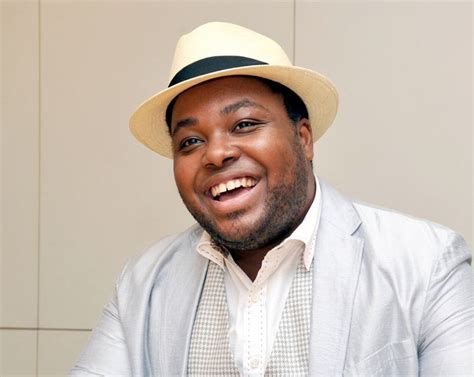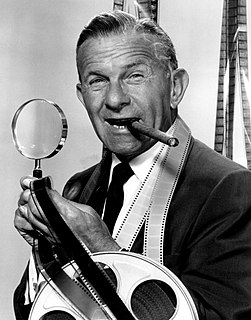A Quote by Pranav Mistry
For true augmented reality, the display would have to dynamically focus, which would require additional hardware on the glasses to read your eye.
Related Quotes
So is not mathematical analysis then not just a vain game of the mind? To the physicist it can only give a convenient language; but isn't that a mediocre service, which after all we could have done without; and, it is not even to be feared that this artificial language be a veil, interposed between reality and the physicist's eye? Far from that, without this language most of the initimate analogies of things would forever have remained unknown to us; and we would never have had knowledge of the internal harmony of the world, which is, as we shall see, the only true objective reality.
While it might be true that our reality would suggest that more writers would address these elemental issues of modern life - work, the marketplace, brutality, race - I'm not sure I have enough of a sense in aggregate of what the dominant novelists are doing to comment on why less do, or if less do. Maybe that's partly because I don't feel woven into any kind of fabric of contemporaries; I just read what I read, and do what I do.
And consequently, you have this rich looking film, which gives it this kind of muscular feel, deep focus, soft focus look. I'm not that great on development. I can see where things go wrong, but Beau, Carl and Mike Finch, they worked on it relentlessly. And then I would see the material and I would say, "Well, that just doesn't ring true. I don't quite know why that's happening."
Do nothing that you would not like God to see. Say nothing you would not like God to hear. Write nothing you would not like God to read. Go no place where you would not like God to find you. Read no book of which you would not like God to say, "Show it to Me." Never spend your time in such a way that you would not like to have God say, "What are you doing?
I would not want to forget the first time I read The Lord of the Rings. I would never want to forget that! That was so magical to me, and that was a real eye-opening experience. I was probably 11 when I read that and already a reader, but I think that book really showed me how you can be transported and how your imagination can take you to a whole other place.
What makes You Can't Take It With You so popular and a perennial favorite with student and amateur productions (it continues to be one of the top 10 best-selling plays year after year) is the breadth of characters and personalities on display: in age, race, gender, social status, a true cross section of society when the play was written and also true today in terms of the reality of the humanity on display.





































